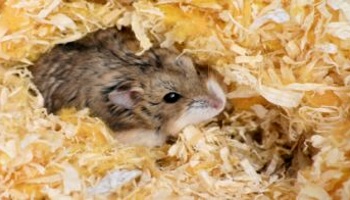- Find a Pet
- Advice and Welfare
- Ways to Give
- Get Involved
- What We Do
- Search
- My RSPCA
- Report a concern
- Sponsor
-
Colour modeVivid Calm
- Home
- Advice and welfare
- Pets
- Rodents
- Hamsters
- Company
Keeping hamsters together
Generally, hamsters are solitary animals, and prefer to live alone.
Syrian and Chinese hamsters aren’t naturally sociable and should always live on their own. With the right care and conditions, dwarf hamsters such as the Roborovski dwarf hamster, Campbell’s Russian dwarf hamster or winter white dwarf hamster can sometimes live in pairs or trios. However, it’s important to remember that even dwarf hamsters don’t need the company of other hamsters to be happy. Many dwarf hamsters living and pairs or trios may fall out later on in life even if they're getting on well initially. If this happens owners must be prepared to house them separately.
Hamsters use odours including pheromones to communicate. For this reason:
- Don't house unfamiliar hamsters next to one another, even in different cages, as they can find this stressful.
- Don't house female hamsters near males – when they're in season, they produce potent pheromones which leads to frustration in males.
- Don't house males near each other – they secrete pheromones to mark territory and this can be stressful for other males nearby.

Housing hamsters in groups
It's important to make sure groups of hamsters are compatible because when hamsters get aggressive towards each other it can be very traumatic and lead to serious injury or even death.
Syrian and Chinese hamsters in particular are not naturally sociable and are better kept on their own. We strongly advise against mixing different species and sexes of hamsters.
Some species of hamster, principally dwarf hamsters, can be housed in pairs or trios, as long as the groups are formed early in life and are stable and harmonious – however, even these species don't need company to be happy. Ideally, group-housed hamsters should be young litter mates to help reduce the risk of aggression.
Additional group members shouldn't be added at a later date. However, if this has to be done, house the animals singly but adjacent to each other for a week or so before putting them together, and monitor them carefully when grouping them. Don't leave them together overnight until you are sure they are settled.
Although dwarf hamsters are more sociable than other species of hamster, fighting can still occur – especially if there isn't enough space or enrichment. Fighting between cage-mates is likely to happen during the night when hamsters are active. Always check your hamsters in the morning to make sure that one or other of them is not badly injured and needing veterinary attention.
If fighting occurs hamsters will need to be permanently separated into different cages – hamsters don't play-fight so any signs of a fight should be taken seriously. We don't recommend reintroducing hamsters initially separated due to fighting.
Use a cage with lots of space and provide plenty of enrichment, such as wheels, toys, clean hay, shredded paper and pieces of tissue. Make sure that each hamster has equal opportunities to access resources and can hide away from the others if it wishes to, by providing multiple shelters.
Always check your hamsters regularly to make sure that aggression between the group members is not becoming a problem.
Keeping hamsters with other pets
Hamsters can find the presence and scent of other animals (especially predator species such as cats or dogs) in the home stressful, so make sure your other pets can't access your hamster and its cage. Always keep a constant eye on your hamster when they're with another animal that may deliberately or accidentally harm or frighten them – even if you think they're good friends.



